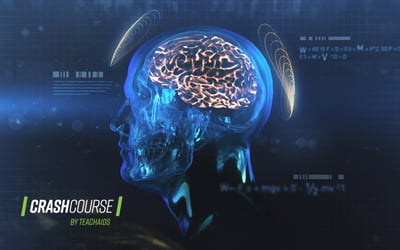USA Hockey on Tuesday announced a partnership with TeachAids, a non-profit created at Stanford in 2009 by Graduate School of Education Lecturer Piya Sorcar. TeachAids uses technology to improve health education around the world, and USA Hockey will use TeachAids’ CrashCourse program, a concussion education program, as a resource for athletes, coaches and parents.
CrashCourse programs will now be used by 19 national governing sports bodies, including USA Football, USA Wrestling, and now USA Hockey. The CrashCourse interface includes components like interactive videos, a brain fly-through which allows athletes to explore the human brain and a symptoms story wall that educates athletes on the markers of a concussion.
Concussions are especially prevalent in hockey, a fast-paced, high-contact sport. A 2014 study published in the Journal of the Canadian Chiropractic Association examined injuries in ice hockey across North America and found that concussions account for 15 to 30% of all hockey head injuries. Concussions, especially if left untreated, can have serious consequences for athletes, including missing weeks of practice, and, in severe cases, retirement.
Michael Stuart, USA Hockey’s chief medical and safety officer, said in a press release that he is excited about the partnership between USA Hockey and TeachAids.
“I’m proud of our on-going focus and commitment to health and safety and this is another resource that will be extremely beneficial,” Stuart said.
USA Hockey plans to implement the CrashCourse program into its already existing concussion materials, and the program will be available online on the team’s website. Kevin Margarucci, the manager of player safety for USA Hockey, believes the program will be a “great fit to complement our existing concussion education offerings.”
Concussion programs such as CrashCourse may be an important step in helping athletes understand the prevalence of concussions, as well as how they impact the brain. Researchers at Stanford and Harvard are studying how concussion education programs may impact an athlete’s willingness to report signs of a concussion, Margarucci said.
The concussion program offered by CrashCourse is aimed at educating athletes of all levels as well as their support systems about concussions.
“We strongly believe that athletes of all ages and abilities, as well as their parents and coaches, will be able to make better choices with accurate, research-based information that is presented in a concise and compelling manner,” said Dick Gould, the vice chairman at TeachAids and a former Stanford tennis coach.
The online nature of CrashCourse has allowed the program to continue disruption-free, Gould added. While the way the sports season is functioning this year is drastically different, COVID-19 will not impact the partnership between TeachAids and USA Hockey.
“With all of our products online and for free, thankfully the distribution mechanism remains the same to educate the sports community,” Gould said.
In the coming months, TeachAids plans to continue expanding CrashCourse materials to tailor them to a variety of sports. They will do so in collaboration with the United States Olympic & Paralympic Committee. This program will be distributed to professional and recreational teams (and those in between) through national governing sports bodies, and will also be distributed to over 10,000 schools across the United States, according to the CrashCourse website.
Contact Anuka Mohanpuhr at anuka ‘at’ stanford.edu.
